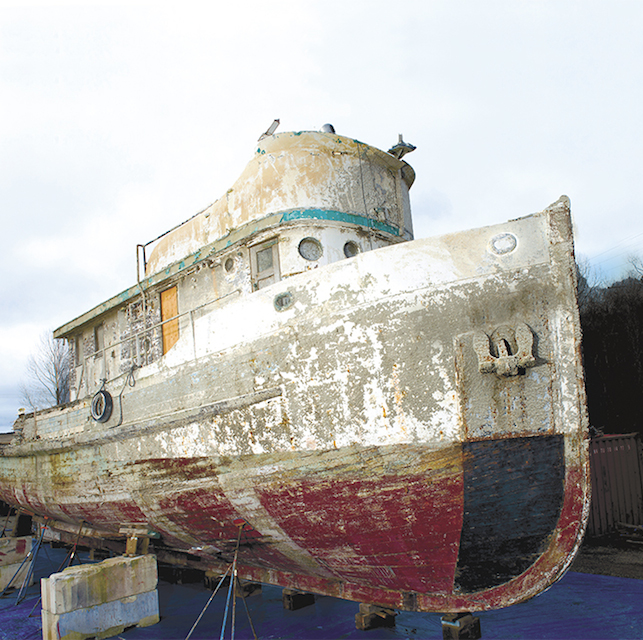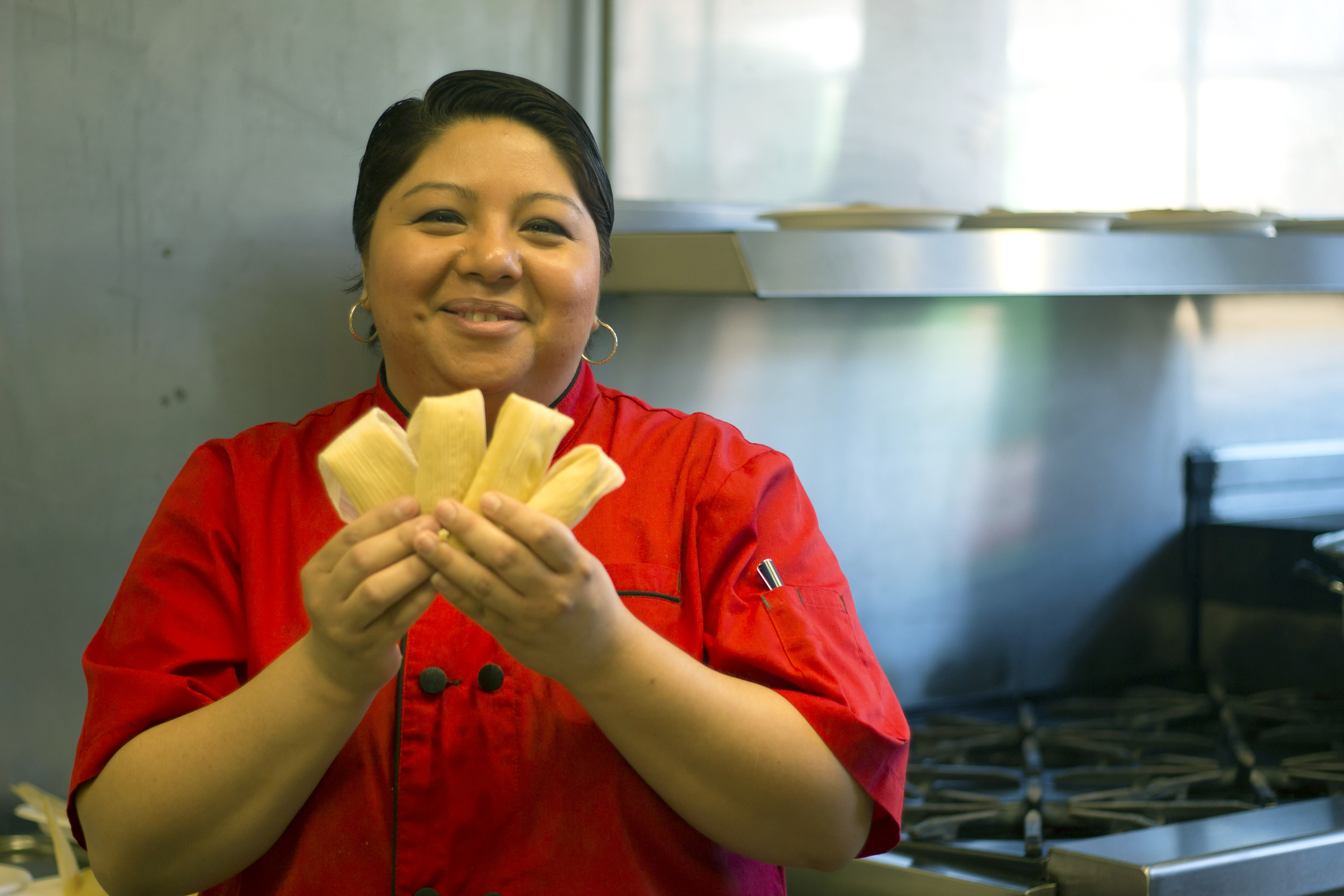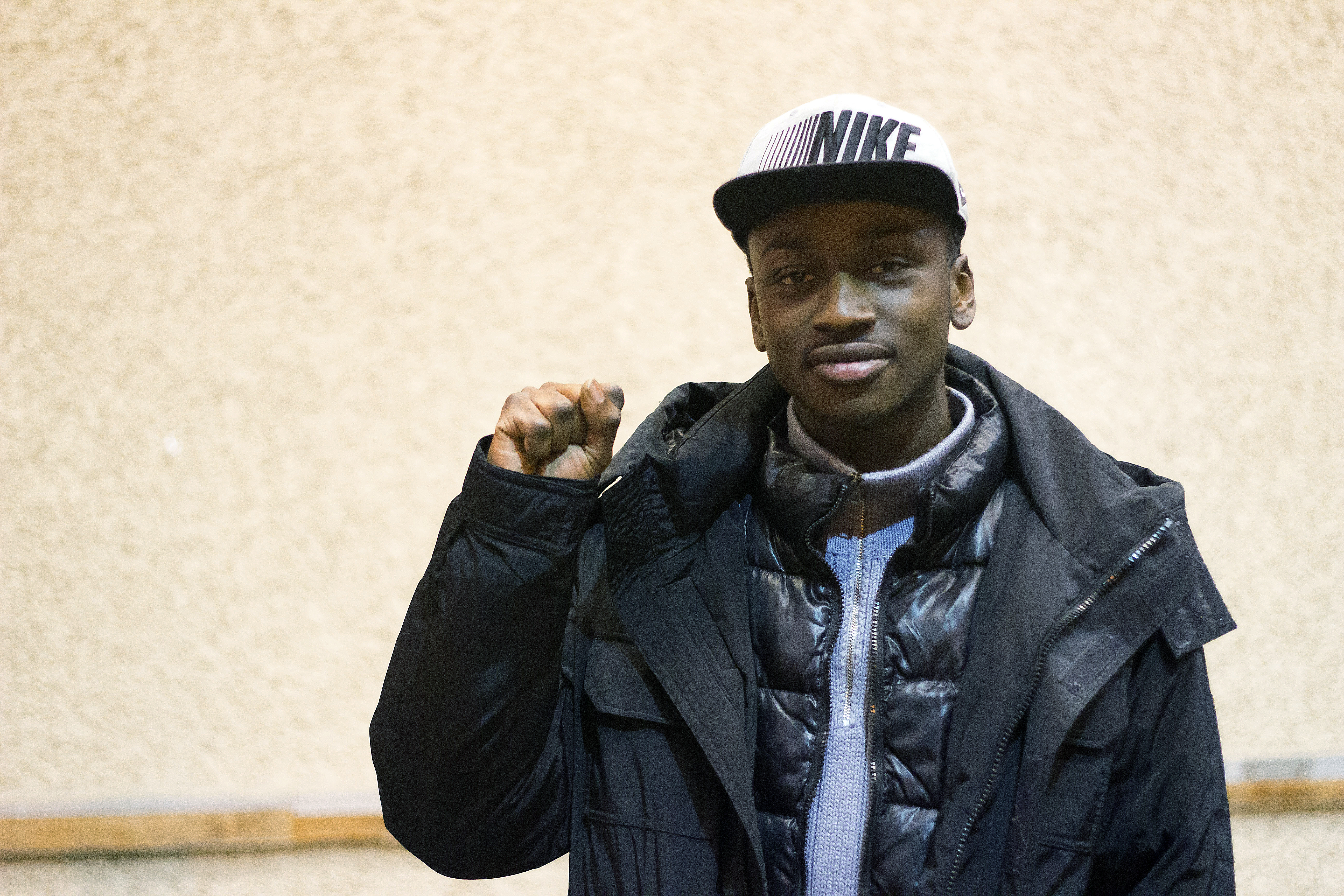Patrons eat in complete darkness served by blind waitstaff. Photo Courtesy The Blind Cafe
Imagine a dark room. Now imagine it’s darker. And then darker still. Whatever image you now have in your mind, whatever level of darkness you can imagine, it cannot compare to the utter void of light that The Blind Cafe exists in. It is dark at a level I could hardly comprehend. After an hour and a half in the room, I still could not make out a single shape or silhouette. Not a hint of anything was perceptible. There was food, and music, and a bottle of wine in my hand I didn’t dare risk pouring into a cup for fear of spilling it. Surrounded by strangers, I wasn’t exactly sure what I was supposed to be doing at The Blind Cafe.
In 2007 musician Rosh Rocheleau found himself touring in Iceland. By chance he happened upon a cafe with all its lights off, but occupied nonetheless—a unique dining experience where patrons eat in complete darkness served by blind waitstaff. It was a life-changing experience, one he carried inside for years until he met a blind girl in one of his classes at Naropa University in Boulder, Colo.
“I just set up the atmosphere and, to be honest, I don’t really control the outcome.”
“I had an idea of involving music with a blind dining experience, and asked her if she thought the local blind community would be interested in participating,” he says. A few months later, The Blind Cafe was born, guiding its first diners through the dark in Boulder in February 2010.
As Rocheleau will tell you, there are lots of blind dining experiences in existence, and The Blind Cafe was neither the first nor the most recent, but that doesn’t mean it’s not different. “A lot of other dining-in-the-dark experiences focus on high-end food, and just the dining experience. You’re situated at a table with just your dining partner and you eat and that’s it.”
The Blind Cafe today is far more than a meal with the lights off. Diners sit at communal tables, where they’re encouraged to share food and conversation with complete strangers; there’s a Q&A with the blind waitstaff (mostly volunteers from local organizations and community groups for the blind); and Rocheleau’s band serenades diners toward the end of the meal. It’s a myriad of experiences whose goal isn’t entirely easy to decipher, because The Blind Cafe doesn’t present only an opportunity to eat some food in a dark room. Rocheleau admits, “I just set up the atmosphere and, to be honest, I don’t really control the outcome.” If I was confused about what he meant, I’d soon figure it out when I attended a recent Blind Cafe in Seattle.
This year’s event was held at LUCID, a modern lounge/restaurant on the less-visited northern end of University Way. My dining partner and I arrived for dinner at 6 p.m. on a gloriously bright and sunny Sunday. A few dozen people stood outside, grabbing their tickets and anxiously awaiting what was inside. Not knowing what to expect, some diners asked probing questions, hoping to maintain whatever sense of control they could on the verge of entering a pitch-black room. “How cold is it inside? Should I put on pants?” one asked. I had not even considered wearing pants instead of shorts, and began to grow nervous. Before long, diners were split into their respective communal-table groups, asked to form a conga line of sorts, and led into the venue.
A conga line leading diners through the venue. Photo by AliveStudios.com
Blind waitstaff was instantly on hand to lead us to our table, where we awkwardly fell into our seats and waited, unsure of reaching or moving in any direction for fear of the unknown. Gradually, hands crept out to the table to find Solo cups filled with potato salad, a jicama mint salad, and hummus in lettuce wraps, which were casually placed directly on the table, without the reassuring edge of a plate or bowl to guide us.
Then something interesting happened. The fear and anxiety of the darkness gave way to an anonymity that encouraged bonding. As Rocheleau would tell me later, “In a way, we’re setting up the environment to be uncomfortable. It helps people to connect.” And, perhaps counterintuitively, it did. Diners across from me who I’d never met started helping me, handing me bits of bread and olives when I professed I could not, for the life of me, find them anywhere on the table. Bottles of wine were opened and we drank, easing into the comfort and spontaneity that the darkness afforded. There was no judgment, no facial expressions to pick up on, and the din of voices rose and filled the room with a warmth and a sense of communal sharing. It was, for a moment, what I imagine The Blind Cafe strives to always be.
As we finished dinner, a Q&A period began with the blind waitstaff. The sense of anonymity carried through. Diners asked honest questions about how they could approach blind people in the real world, how to act around them, and how to offer help: questions that many, in the light of day, might be too embarrassed or shy to ask.
Rosh and his band started playing acoustic instruments, and for the first time all evening, the clatter of voices, my own included, finally died down. Halfway through the music, the absence of conversation allowed me to reflect. I didn’t know it, but we’d been in the Cafe for over an hour and a half. I had already experienced anxiety, comfort, and even deeper comfort that expressed itself in boisterous and at times rambunctious laughter and conversation—much, I imagine, to the chagrin of my fellow diners. And then the anxiety returned. How long would we be in here? What time was it? How long had I been in this room? Do I even remember what seeing is like? I started to feel claustrophobic, nervous, and cagey, wringing my hand to occupy myself and periodically feeling the table with my hands hoping to find something new to distract me.
Blind waitstaff take part in a Q&A during the meal. Photo Courtesy The Blind Cafe
After what seemed an eternity, the music culminated in a participatory call-and-response that grew louder and louder as Rocheleau asked if we were ready to see the light. Like a group of the newly evangelized, we all shouted yes, and meant it. Rocheleau stood above us all and raised a lit candle above his head like he was the Statue of Liberty. We fed on that light with a voraciousness that could rival no hunger. Beautiful, beautiful light filled our eyes, and I felt tremendous. Then it grew brighter, and I grew aware of my loud, unrestricted laughter and raucous conversation. It had seemed so appropriate in the moment, but now, in the light, I felt extremely uncomfortable. The darkness offered protection, and now that protection was gone.
It was the end of the Cafe’s last show in Seattle, at least for now. Though headquartered in Boulder, The Blind Cafe hits cities all across the country, Seattle being a usual stop. But it may not last forever. As a charitable event (proceeds go to support local organizations for the blind) with a lot of man hours involved, Rocheleau tells me that the ticket sales simply don’t add up—which is too bad, because I think it’s an experience most people should have, even if it doesn’t meet their expectations.
For some, it’s a novelty dinner. For others, it can be so powerful as to be a spiritual experience. Rocheleau has even received e-mails from people telling him that the Cafe saved their marriage. But what’s for sure is that The Blind Cafe affects everyone who enters it, in some way, on some level. And if you aren’t sure of its effect at the beginning, you will be at the end, when the music stops and the lights come on.
food@seattleweekly.com








